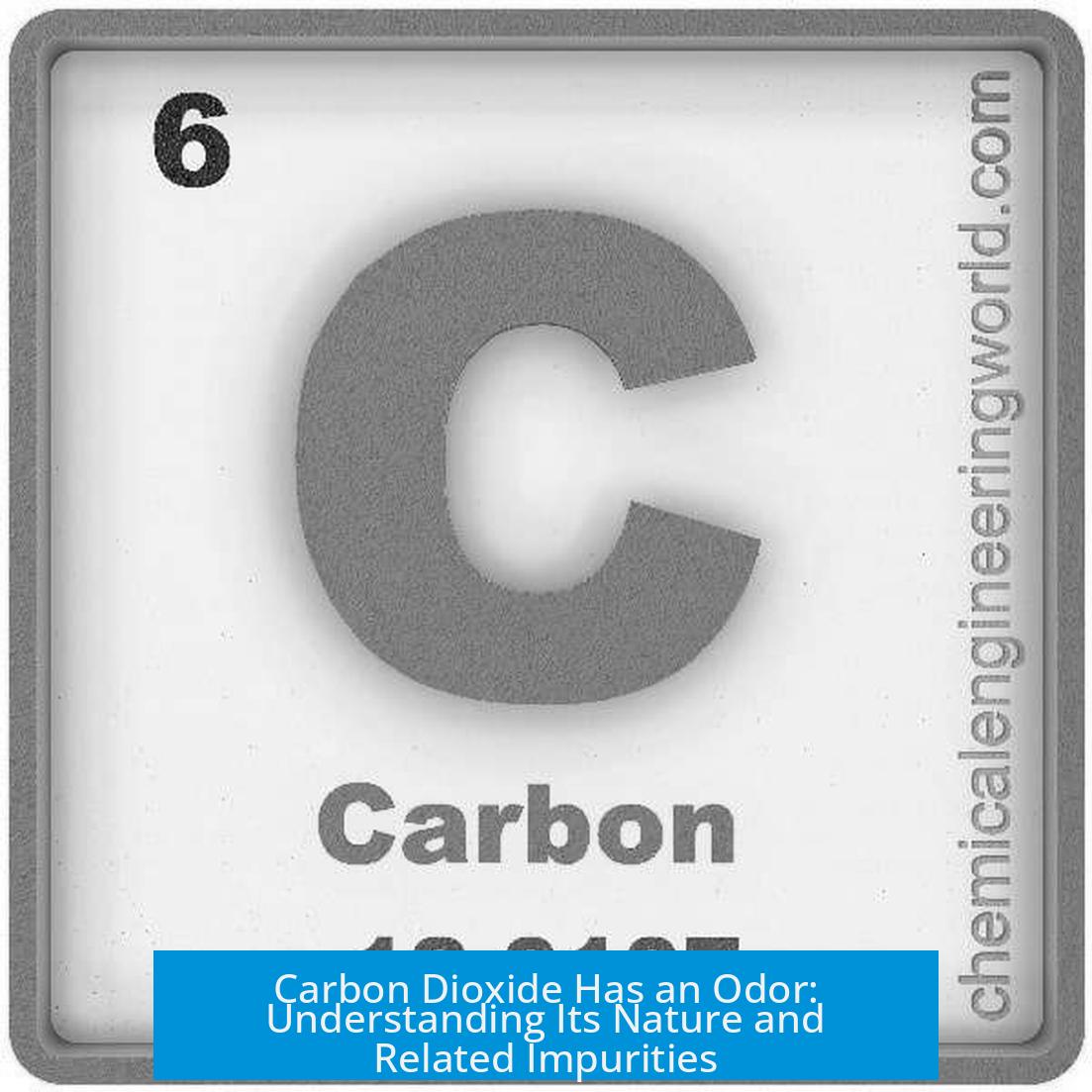Does Carbon Dioxide Have an Odor?
Carbon dioxide (CO2) itself is odorless, though odors sometimes associated with it often arise from related compounds like carbonic acid or impurities such as sulfur compounds. This explains why some people claim to detect a smell when exposed to CO2 gas.
Why Pure Carbon Dioxide Is Odorless
By nature, CO2 molecules lack functional groups that emit smell. The gas is colorless and odorless under standard conditions. When you inhale pure CO2, it produces no direct olfactory sensation because the human nose does not detect it.
Odors Linked to Carbonic Acid and Impurities
- Carbonic Acid: When CO2 dissolves in water or moisture, it forms carbonic acid (H2CO3), which has a faint odor. This acid can be responsible for slight smells sometimes noticed near CO2 sources.
- Impurities in CO2 Cylinders: Commercial or industrial CO2 cylinders occasionally contain contaminants like hydrogen sulfide (H2S) or other sulfur compounds. These compounds are known for pungent and choking odors, which may be misattributed to CO2 itself.
Describing the Smell People Report
People describe the odor near CO2 as pungent or choking rather than sweet or similar to organic acids like formic acid. This inconsistency in descriptions indicates that the perceived smell often depends on context and specific contaminants rather than inherent CO2 properties.
“Smells can be hard things to describe, unless they closely resemble something else in common experience.”
Additional Practical Context
Beyond odor concerns, CO2 finds various applications in laboratories and industry. Some labs use CO2 for euthanasia of animals, a practice criticized for inhumanity compared to nitrogen gas, which acts more gently.
Key Takeaways
- Pure carbon dioxide gas has no odor.
- Smells often come from carbonic acid formed when CO2 dissolves in moisture.
- Impurities like sulfur compounds in CO2 cylinders create pungent, choking odors.
- People find it difficult to consistently describe the odor associated with CO2 environments.
- CO2 use in laboratories involves concerns beyond smell, such as ethical considerations.





Leave a Comment